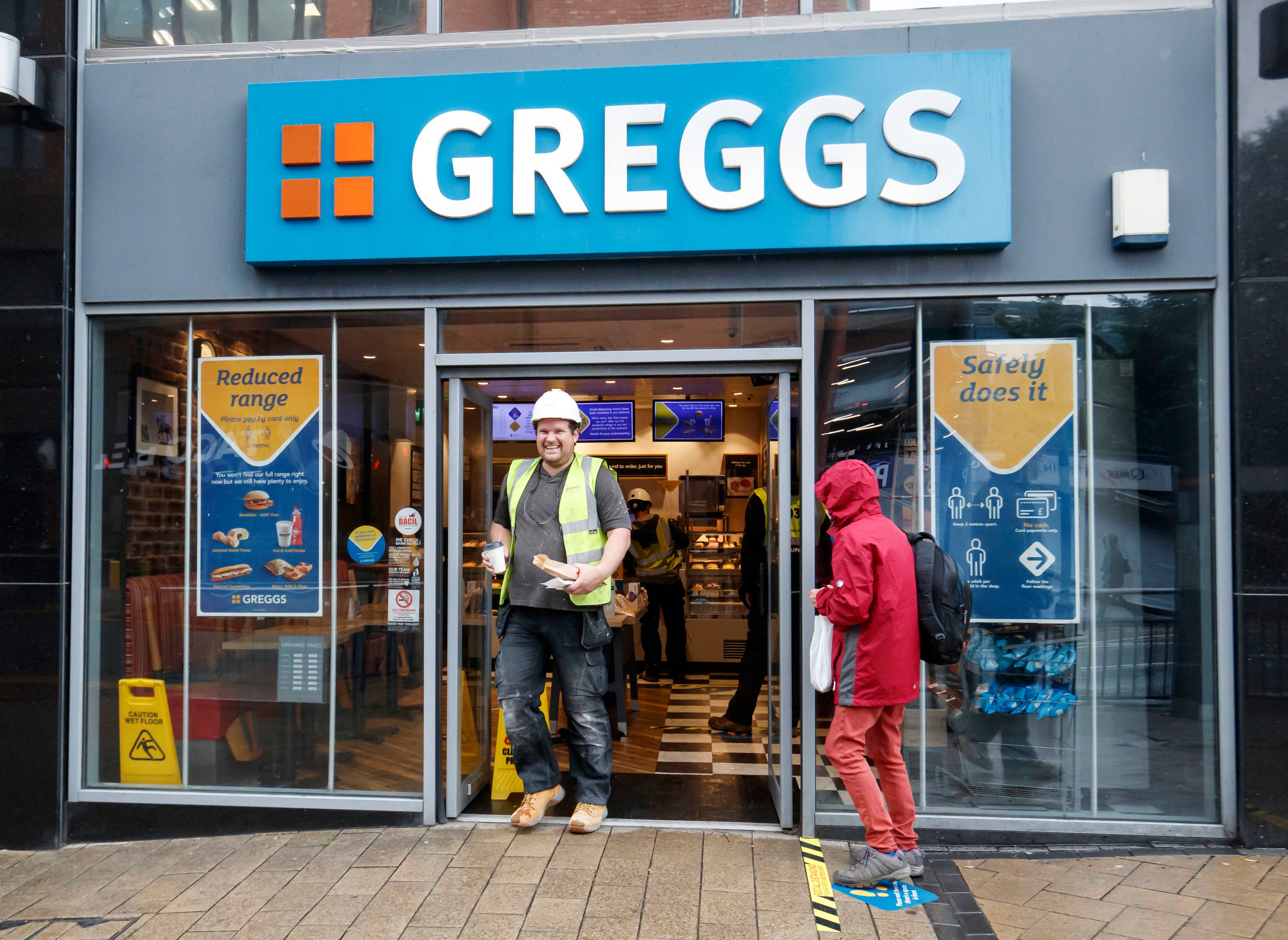Greggs is tastier than the City thinks, at least in the long term
The food-on-the-go specialist is still opening new outlets despite the pandemic, while demonstrating its ability to adapt, James Moore writes


Greggs took a kick in the teeth from the City upon the release of its latest trading statement. Its shares, already touching a two-year low, found themselves in the bargain bin next to the vegan sausage rolls left at the end of the day.
It took until about 2pm for investors to decide they were hungry enough to take a bite at the bombed out shares, and even then they didn’t exactly dig in.
The pandemic was the reason. Of course the pandemic was the reason. Coronavirus spikes were all over the food-on-the-go specialist’s trading statement, just as they are all over almost every company of note when they update their numbers.
Greggs’ sales picked up during September, it’s true, but they were still running at just 76.1 per cent of where they were in 2019. Worse still, there is a notable lack of optimism when it comes to the coming months. The word “uncertainty” features a lot. We are “adapting to (an) uncertain trading outlook” and such like. It translates as “yuck”.
Part of that adaptation includes negotiating with unions over reducing the hours of the company’s workforce. The stated aim: to minimise possible redundancies “with the Job Retention Scheme planned to end in October”.
There’s an interesting wrinkle here. You would think its replacement – Rishi Sunak’s less generous Job Support Scheme – would be tailor made for a business such as Greggs, which obviously employs people in jobs that would be viable were it not for the pandemic. In other words, the sort of jobs the scheme was designed to protect.
The scheme pays the wages of staff so long as they first work at least a third of their hours, and so would seem to be ideal for a business in the position of Greggs. The company says it will look to make use of the scheme, but its stance suggests that Sunak’s latest baby is either not good enough, too fiddly, or that the outlook is sufficiently bad that the company has decided it has no choice but to bite the bullet. With the second wave now firmly underway it’s probably a combination of all of those.
On the flip side, however, the business is still planning to expand with a net 20 new openings expected this year. That’s some way short of the 100 originally promised, but the fact that Greggs is willing to shoot for future growth in the midst of a vicious economic squall speaks well of this business’s prospects when something approaching normality is restored. So does its ability to change and enhance its model by adding facilities such as deliveries in partnership with Just Eat and click and collect ordering
Behind the scenes the estate is changing too. Out are high street stores, in are concessions in supermarkets, outlets near transport hubs, stores accessible by car.
The way the business is developing is as ominous for those with a concern for the shape of Britain’s town centres as it should be welcome to investors willing to hold their nerves, who can also find reasons to be cheerful in the move to expand menus beyond the skeleton offer in place during the pandemic.
It goes without saying that the the virus could yet force a retreat. But Greggs seems to be in a better place than many of its peers. Its value proposition should also serve it well at a time when the jobless total is rising at an alarming rate and wages are unlikely to grow by much, if at all.
In other words: those who dip into the Greggs bargain bin should be rewarded even if it takes a while.



Join our commenting forum
Join thought-provoking conversations, follow other Independent readers and see their replies
Comments